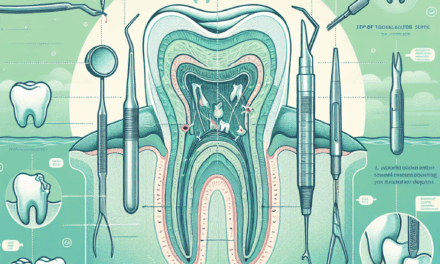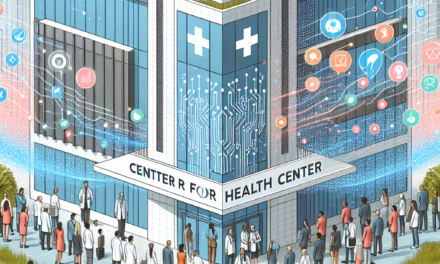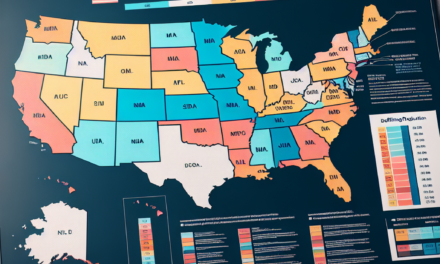Trump Nominates Health IT Expert to Head CDC
The nomination of a health IT expert to lead the Centers for Disease Control and Prevention (CDC) marks a significant shift in the approach to public health management in the United States. This article delves into the implications of this nomination, the qualifications of the nominee, and the potential impact on public health policy and practice. We will explore the historical context of the CDC, the role of technology in health management, and the challenges and opportunities that lie ahead.
Understanding the Role of the CDC
The Centers for Disease Control and Prevention (CDC) is a pivotal agency within the U.S. Department of Health and Human Services (HHS). Established in 1946, the CDC’s primary mission is to protect public health and safety through the control and prevention of disease, injury, and disability. The agency plays a crucial role in responding to health emergencies, conducting research, and providing guidance on health policies.
Historically, the CDC has been at the forefront of managing public health crises, from infectious disease outbreaks to chronic health issues. The agency’s work is grounded in scientific research and data analysis, making it essential for the CDC to adapt to the evolving landscape of public health challenges.
- Public Health Surveillance: The CDC monitors health trends and outbreaks, providing critical data to inform public health responses.
- Research and Development: The agency conducts research to develop effective interventions and policies to combat health threats.
- Health Education: The CDC provides resources and information to educate the public and healthcare professionals about health issues.
- Emergency Response: The agency coordinates responses to health emergencies, such as pandemics and natural disasters.
- Policy Guidance: The CDC advises federal, state, and local governments on public health policies and practices.
Given the CDC’s critical role, the nomination of a health IT expert to lead the agency signals a recognition of the importance of technology in modern public health management. This shift could enhance the agency’s ability to respond to health crises and improve overall public health outcomes.
The Nominee: Qualifications and Background
The nominee for the CDC director position is a seasoned health IT expert with a robust background in public health, data analytics, and technology integration. This section will explore the nominee’s qualifications, previous roles, and contributions to the field of health information technology.
With a Ph.D. in Health Informatics and over 15 years of experience in the healthcare sector, the nominee has a proven track record of leveraging technology to improve health outcomes. Their previous roles include serving as the Chief Information Officer (CIO) for a major healthcare organization and leading initiatives to implement electronic health records (EHR) systems across multiple facilities.
- Educational Background: The nominee holds advanced degrees in public health and health informatics, equipping them with the knowledge necessary to navigate the complexities of public health.
- Professional Experience: Their experience includes working with government agencies, private sector organizations, and non-profits, providing a well-rounded perspective on public health challenges.
- Innovative Projects: The nominee has spearheaded projects that integrate data analytics into public health strategies, demonstrating their commitment to evidence-based decision-making.
- Leadership Skills: As a recognized leader in health IT, the nominee has successfully managed multidisciplinary teams and fostered collaboration among stakeholders.
- Advocacy for Health Equity: The nominee has been an advocate for using technology to address health disparities, emphasizing the importance of equitable access to healthcare resources.
The nominee’s extensive background in health IT positions them well to lead the CDC in an era where data-driven decision-making is paramount. Their expertise will be crucial in enhancing the agency’s capabilities to respond to emerging health threats and improve public health infrastructure.
The Role of Technology in Public Health
Technology has become an integral part of public health management, transforming how data is collected, analyzed, and utilized. This section will explore the various ways technology is shaping public health practices and the implications for the CDC under the new leadership.
One of the most significant advancements in public health technology is the use of electronic health records (EHRs). EHRs facilitate the collection and sharing of patient data, enabling healthcare providers to make informed decisions and improve patient care. The integration of EHRs into public health systems allows for better surveillance of disease outbreaks and more efficient responses to health emergencies.
- Data Analytics: Advanced data analytics tools enable public health officials to identify trends, predict outbreaks, and allocate resources effectively.
- Telehealth: The rise of telehealth services has expanded access to healthcare, particularly in underserved communities, improving health outcomes.
- Mobile Health Applications: Mobile apps provide individuals with tools to manage their health, track symptoms, and access health information, empowering patients to take charge of their well-being.
- Wearable Technology: Devices that monitor health metrics, such as heart rate and activity levels, contribute to preventive health measures and chronic disease management.
- Artificial Intelligence: AI is being used to analyze vast amounts of health data, providing insights that can inform public health policies and interventions.
The integration of technology into public health practices presents both opportunities and challenges. While technology can enhance efficiency and improve health outcomes, it also raises concerns about data privacy, security, and equity. The new CDC director will need to navigate these complexities to ensure that technology serves as a tool for advancing public health rather than a barrier.
Challenges Facing the CDC and Public Health
As the CDC prepares for a new era under the leadership of a health IT expert, it faces several challenges that must be addressed to effectively protect public health. This section will examine these challenges and the strategies that can be employed to overcome them.
One of the most pressing challenges is the ongoing threat of infectious diseases. The COVID-19 pandemic highlighted vulnerabilities in the public health system, including inadequate surveillance, slow response times, and communication breakdowns. The new director will need to implement strategies to strengthen the CDC’s capacity to respond to future outbreaks.
- Resource Allocation: Ensuring adequate funding and resources for public health initiatives is critical for effective disease prevention and response.
- Workforce Development: Investing in training and development for public health professionals is essential to build a skilled workforce capable of addressing complex health challenges.
- Public Trust: Rebuilding public trust in health institutions is vital, particularly in the wake of misinformation and skepticism surrounding vaccines and public health measures.
- Interagency Collaboration: Strengthening collaboration between federal, state, and local health agencies can enhance coordination and improve response efforts.
- Equity in Health Access: Addressing health disparities and ensuring equitable access to healthcare resources is crucial for improving overall public health outcomes.
By addressing these challenges head-on, the new CDC director can position the agency to effectively respond to current and future public health threats. A focus on collaboration, innovation, and equity will be essential in navigating the complexities of modern public health.
The Future of Public Health Under New Leadership
The nomination of a health IT expert to lead the CDC represents a pivotal moment in the evolution of public health management in the United States. This section will explore the potential future directions for the CDC and the broader implications for public health policy and practice.
With a focus on technology and data-driven decision-making, the new director has the opportunity to transform the CDC into a more agile and responsive agency. By leveraging technology, the CDC can enhance its surveillance capabilities, improve communication with the public, and foster collaboration among stakeholders.
- Emphasis on Preventive Health: A shift towards preventive health measures can reduce the burden of chronic diseases and improve overall population health.
- Integration of Behavioral Health: Addressing mental health as a critical component of public health can lead to more comprehensive health strategies.
- Global Health Collaboration: Strengthening partnerships with international health organizations can enhance global health security and preparedness.
- Focus on Health Equity: Prioritizing health equity initiatives can help address disparities and ensure that all populations have access to quality healthcare.
- Innovation in Public Health Policy: Embracing innovative approaches to public health policy can lead to more effective interventions and improved health outcomes.
The future of public health under new leadership at the CDC holds promise for a more integrated, technology-driven approach to health management. By prioritizing innovation, collaboration, and equity, the agency can better serve the needs of the American public and respond effectively to emerging health challenges.
Conclusion
The nomination of a health IT expert to head the CDC signifies a transformative moment in public health management. As the agency prepares to navigate the complexities of modern health challenges, the new director’s expertise in technology and data analytics will be invaluable. By addressing the challenges facing public health, leveraging technology, and prioritizing health equity, the CDC can enhance its capacity to protect and promote the health of the American population.
In summary, the future of public health under new leadership at the CDC is filled with opportunities for innovation and improvement. By embracing a data-driven approach and fostering collaboration among stakeholders, the agency can effectively respond to current and future health threats, ultimately leading to better health outcomes for all.




